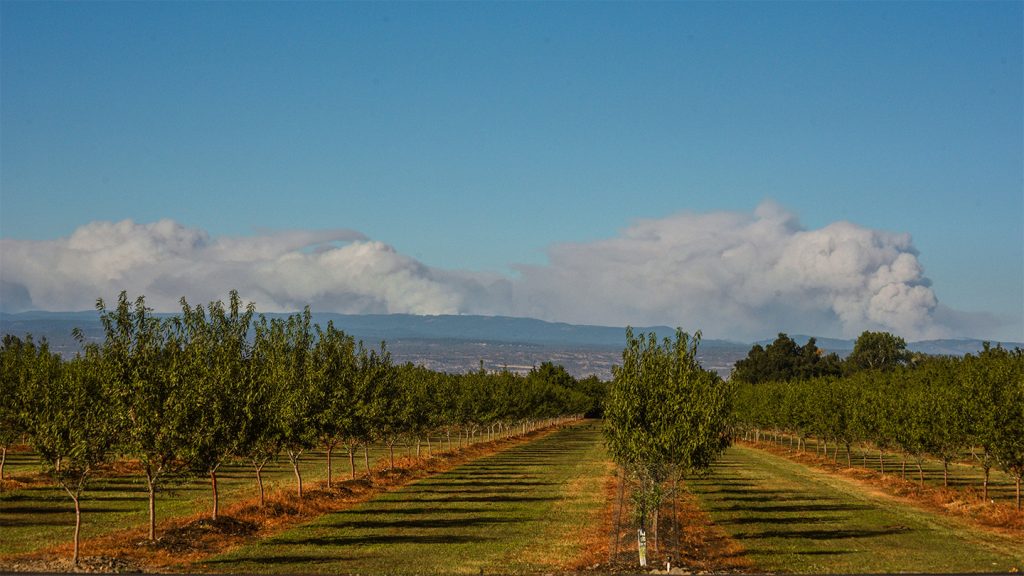A new study suggests that the smoke from megafires in the western United States may be putting some of America’s favorite nuts at risk. When thick wildfire smoke blanketed California’s Central Valley in 2020 and 2021, it blocked crucial sunlight for orchard trees, limiting their energy storage over the winter. This disruption led to a decrease in nut harvests, with some almond orchards experiencing up to a 60 percent decrease in production. This effect of wildfire smoke on nut production alerted researchers to an understudied issue in the state that produces 80 percent of the world’s almonds.
Trees, like humans, are susceptible to smoke and cannot escape it. They rely on stored carbohydrates to maintain and fuel growth during leafless periods in the winter and early spring. Researchers collected twig samples from almond, pistachio, and walnut orchards in California’s Central Valley to create a baseline for studying the impact of major environmental disruptions on carbohydrate storage. When compared to years without prolonged smoke, years with heavy smoke resulted in orchard trees storing fewer carbohydrates on average, leading to decreased nut production.
The intensity of smoke also appeared to impact nut yield, with some almond orchards producing 30 percent fewer nuts in years following wildfires. Prior to this study, growers were primarily concerned about how wildfires affected crop quality rather than yield. The impact of smoke on the photosynthetic capacity of orchard trees was not previously considered, highlighting a new aspect that researchers believe should be on growers’ radar screens. Wildlife dynamics expert Max Moritz notes that agricultural systems are at a far greater risk of smoke exposure than natural ecosystems due to current fire regimes.
The study raises concerns about how megafire smoke may be affecting natural forest ecosystems, as all trees create and store energy in a similar manner. While some amount of fire is necessary in many forests to clear underbrush, create space for plants and animals, and help certain species release seeds, current fire regimes are often out of balance. The impact of megafire smoke on forests remains a subject of future research, with the potential for similar effects on natural ecosystems as observed in orchard trees. Overall, the study underscores the importance of understanding the broader effects of wildfires and smoke on agricultural and natural systems and emphasizes the need for further research in this area.















